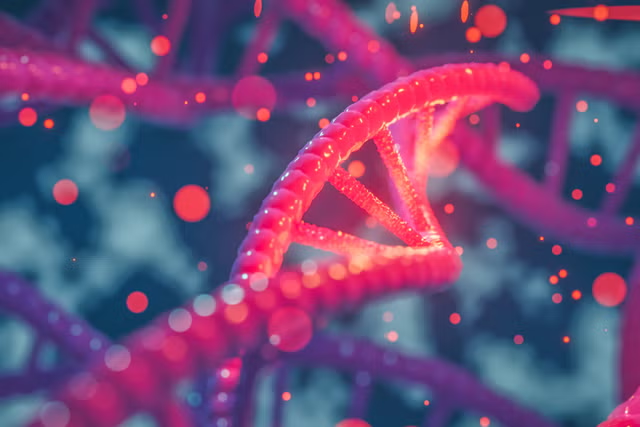Exposure to "forever chemicals" in male mice may impact the health of their future children, according to new research.
Scientists have discovered a link between being exposed to per- and polyfluorinated alkyl substances (PFAS)—also known as "forever chemicals" due to their tendency not to break down—and health issues in their children, according to a new paper in the journal Environment International.
This effect may also be present in humans, the researchers suggest.
"This cutting-edge research may have a significant impact on how individuals look at harmful chemicals in their communities, and ultimately how medical professionals advise their patients," Ezemenari M. Obasi, vice president for research at Wayne State University in Michigan, said in a statement.
Read more: Compare Top Health Savings Accounts
"Our researchers are playing a crucial role in investigating new methods to improve the well-being of people locally, nationally and beyond."
PFAS are a large group of human-made chemicals used in a variety of industries since the 1940s. They are known for their resistance to water, grease, and stains, which makes them useful in numerous products such as nonstick cookware, water-repellent clothing, stain-resistant fabrics, firefighting foams, and food packaging.
According to the U.S. Agency for Toxic Substances and Disease Registry, these "forever chemicals" have been linked to various health issues, including increased cholesterol, increased blood pressure, lessened immune function, reproductive issues, and an increased risk of certain cancers. They have also been linked to developmental effects in infants and children.
Now, however, this study marks the first time that these chemicals have been found to affect the health of mice offspring via the sperm of their father.
"PFAS research is important, especially in Michigan," study co-author Michael C. Petriello, an assistant professor at Wayne State University, said in the statement.
"It has been recently in the news, since the EPA [Environmental Protection Agency] is finally starting to regulate PFAS chemicals and include them as part of the Clean Water Act," he said.
"All over the country, communities will have standards they will have to meet. PFAS are associated with many chronic diseases and can impact inflammation and the immune system, for instance. This work is focused on reproductive outcomes, fertility and offspring metabolism. The idea that exposure of the father could affect the health of offspring is entirely new."
As the researchers explain in the paper, the PFAS chemicals alter the methylation of the mice sperm, leading to altered expression of genes affecting the liver and fat in the offspring. This means that fathers exposed to PFAS may have offspring with epigenetic issues caused by the forever chemicals.
Epigenetics is the study of changes in gene activity that do not involve alterations to the underlying DNA sequence, with these changes instead impacting how genes are turned on or off.
"Dr. Petriello's prior work has shown that PFAS exposure has effects on cardio-metabolic health," co-author Richard Pilsner, professor of obstetrics and gynecology at Wayne State University, said in the statement.
"What my research has done is examine paternal exposures and how they may affect the next generation through sperm-related markers. The burden has always been on maternal health during pregnancy in regard to the health of offspring. This research shows that environmental health prior to conception also is a key factor that affects offspring health and development."
Due to their extensive use and durability, PFAS are found globally, including in remote areas, and are detectable in water, air, soil, and living beings, including humans. Some recent studies found that over half of U.S. tap water contains some PFAS, and that most Americans have PFAS inside their bodies.
While this research was done on mice, it implies that similar impacts may be had on human sperm and therefore epigenetic effects may be seen in human offspring.
"I hope these findings promote an appreciation of male health on their offspring's development," said Pilsner. "In addition to female partners, clinical doctors advising male partners that their pre-conception health impacts their children's health would be a significant change to positively impact future generations."
Is there a health problem that's worrying you? Let us know via health@newsweek.com. We can ask experts for advice, and your story could be featured on Newsweek.
Disclaimer: The copyright of this article belongs to the original author. Reposting this article is solely for the purpose of information dissemination and does not constitute any investment advice. If there is any infringement, please contact us immediately. We will make corrections or deletions as necessary. Thank you.



